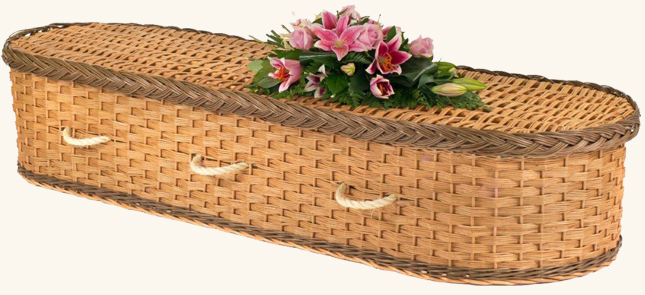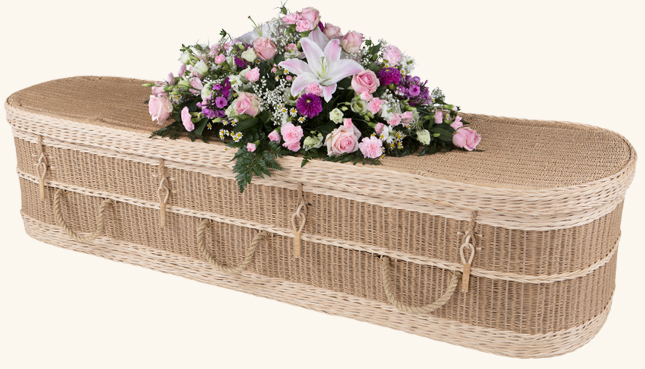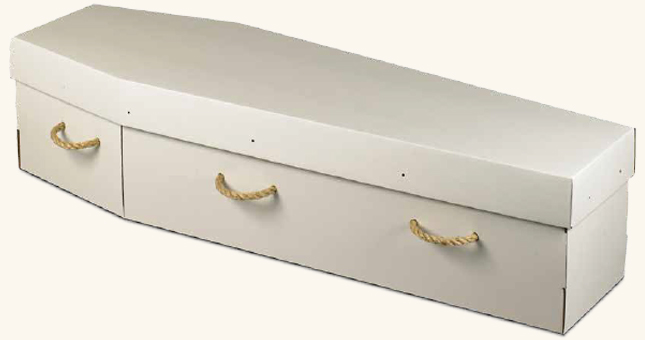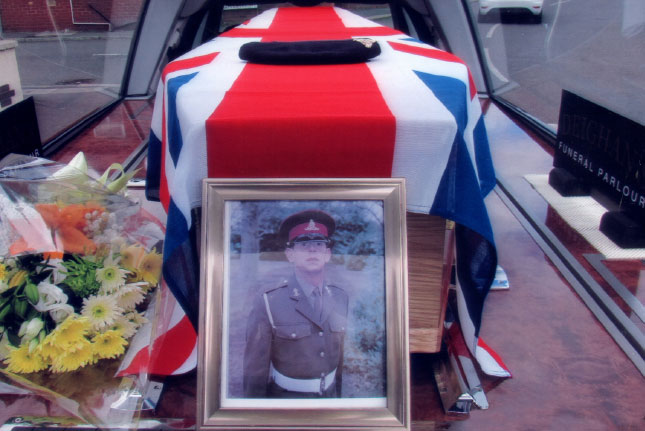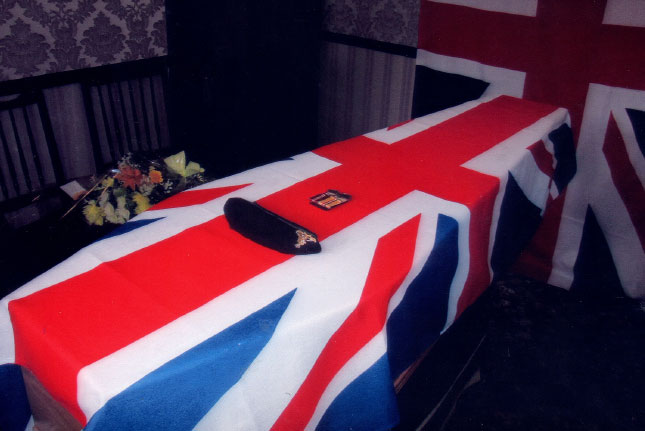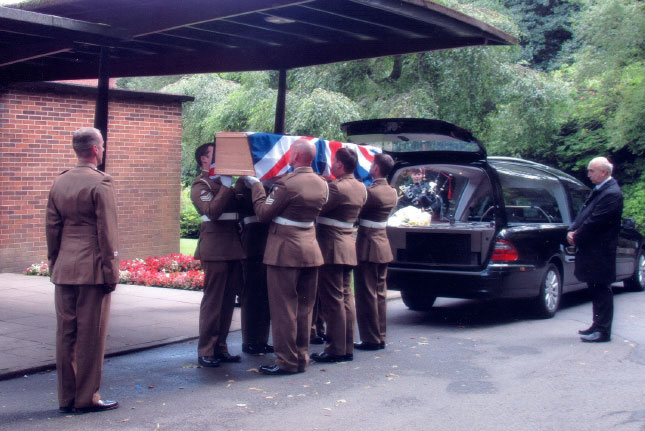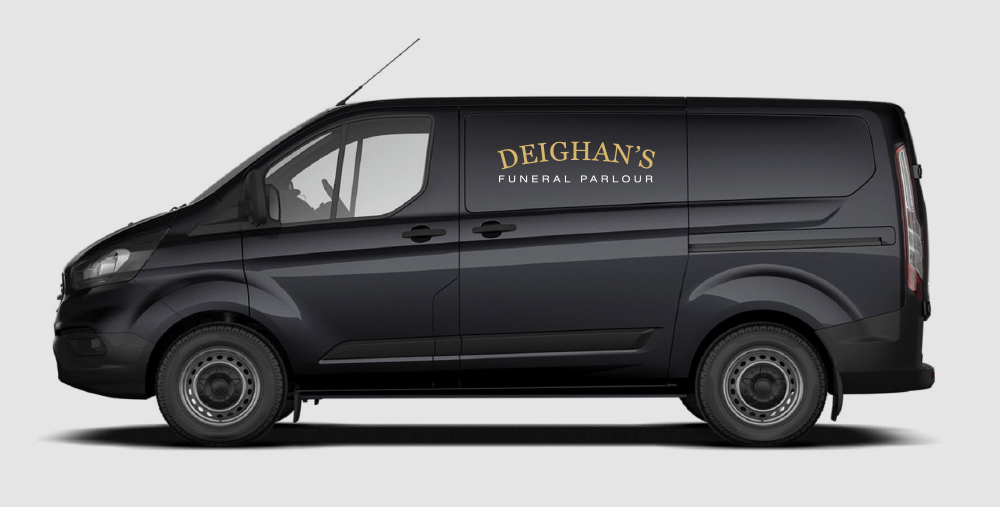Funeral Types
What we do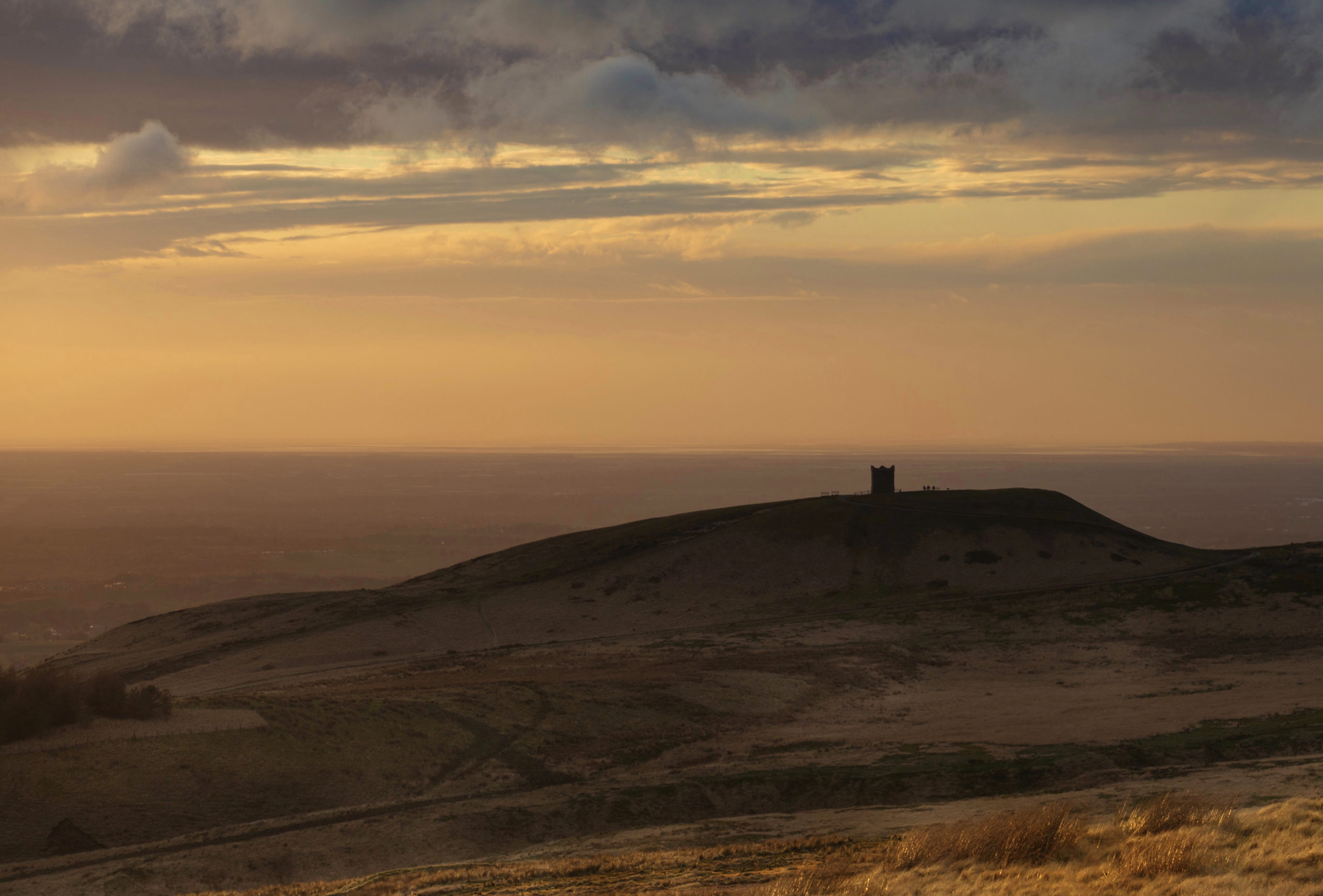

Burials
Many families choose burial for personal preference, family tradition or religious reasons. Some people also like the idea of having a permanent place where they can go to be in close proximity to their loved one.
If burial is your preferred option, your main decision is which cemetery or churchyard to choose. Please be aware that not all cemeteries and churchyards in our local area have room for further burials.
Whether you choose burial or cremation is completely your own choice, though around 3 in 4 funerals use cremation in the UK today. This is for a number of reasons, though it’s worth noting that cremations tend to cost significantly less than burials.
Local Authority Cemeteries
There are a number of Local Authority Cemeteries in our local area. The availability of grave spaces is regulated by the Council who run the cemetery, and they all operate a resident/non-resident system of charging for the purchase of a grave and the cost of opening a grave. Typically, fees for non-residents of the council area – whether it be a parish, district or borough, are charged double the fees paid by residents, although in some cases the differential is higher.
When arranging a burial in an existing grave, we need to establish the current owner of the grave – either by production of the Grave Deed or a search of cemetery records. Some Local Authorities insist that, where the grave owner is deceased, the grave is transferred into the ownership of the person arranging the funeral.
Deighan’s can advise you of the procedures required.
Churchyards
There are still a number of Churchyards within our area where burials can take place.
The regulations relating to Churchyards differ from Local Authority Cemeteries, and are governed by the Church in your area. Due to lack of available space, burials in some Churchyards are only available to residents of the parish.
Burials: things to remember.
If you choose burial for the deceased person, you must find a plot. Remember that:
– You can only lease a burial plot, not own it. However, you will be given the option to ‘top-up’ the lease at regular intervals. Depending on your local authority and place of burial, leases on plots and can last up to 50 years or more.
– You’ll need a grave deed for the deceased, showing that they’re entitled to a grave in a churchyard, cemetery or elsewhere. The deed is obtained when you purchase “the exclusive right to burial” from the cemetery or burial grounds.
– If the deceased didn’t live in the area that they wish to be buried in, the plot may cost more. This is called a non-resident pricing policy, this policy and the associated cost will differ from local authority to local authority.
– Most cemeteries are non-denominational, so you can hold most types of service in their grounds.
– Cemeteries vary in how they allow graves to be marked, for example some cemeteries may only allow you to place only one movable vase or memorialisation on the grave. If you want to use lots of decoration on a grave you may have to reconsider your cemetery choice.
– People can also be buried on their own land. There are some rules but not as many as you might think.
You may wish to give additional consideration when deciding on a final resting place, and it is worth asking yourself these questions to help you make the right decision.
– Is there a grave of any other family member that I wish to use?
– Do I want the burial to be near to where the person lived?
– Do I want them in a cemetery or churchyard?
– Will I want a memorial to visit in the future?
– How far will I want to travel to visit a grave?
– Do I want to visit a grave?
– How often will I visit the grave?
Grave tending service
For those who may not be able to visit the grave as often as they would like, Deighan’s offer a professional Grave Tending Service.
We are here to help
If you’re unsure, we’ll be happy to run through the various options. For more information and advice please contact us.
Cremation
What is a cremation service?
Cremation services usually involve a gathering of family and friends who wish to say goodbye to a loved one, this is known as a cremation committal.
There may be a funeral service at a church or different venue before moving to the crematorium for the committal, or a religious or non-religious service may take place at the crematorium before the cremation. A few days after the cremation, the ashes are returned to the loved ones of the deceased individual.
Planning a cremation ceremony
If you choose to hold the service in a crematorium, it can take the same form as one held in a church, with hymns or music of your choice, prayers, parables, eulogy and photographs of your loved one presented on a TV screen.
Services can also be non-religious if you wish.
Some Crematoriums can offer live streaming of the service via a video link if family or friends are unable to attend the service. The family can decided who could watch the service as a secure pin to access the video link is supplied.
Direct Cremation
Also known as an ‘Unattended Cremation,’ a Direct Cremation includes arrangements and all necessary documentation, collection of the deceased in working hours, traditional coffin and cremation at a local crematorium.
A Direct Cremation is simply the provision of a low cost, unattended cremation without a funeral ceremony. You don’t go to visit the person who has died in the funeral home, there is no hearse, no procession, and no service in the crematorium. Although no family or friends are present, the deceased is always cremated with all due reverence, respect and dignity by one of our funeral directors.
What to do with your loved ones ashes
There are quite a few ways that cremated remains can be laid to rest, some suggestions are listed here. Deighan’s can advise you of any costs.
– Buried in a new ashes grave.
– Buried in an existing ashes grave with another family member.
– Buried in an existing full size grave.
– Scattered at a crematorium.
– Scattered in a churchyard/cemetery. (where allowed)
– Buried at a natural burial ground/green cemetery.
– Scattered, or buried, personally by the family in a special garden or location.
– Buried at sea.
Memorial Jewellery Keepsakes
Dieghan’s offer a beautiful range of memorial jewellery for both men and women by integrating ashes, locks of hair or a finger print of your loved one as a special keepsake.
Our Memorial Jewellery allows you keep those precious memories close to your heart, encased in expertly handcrafted bracelets, rings, pendants and earrings.
Dieghan’s extensive range of keepsakes can be found on our Memorial Jewellery website.
We are here to help
If you’re unsure, we’ll be happy to run through the various options. For more information and advice please contact us.
Direct cremation
Direct Cremation
A Direct Cremation is simply the provision of a low cost, unattended cremation without a funeral ceremony, also known as an ‘Unattended Cremation.’
Direct Cremation is also an option where all possible attendees are scattered around the country, or world, or are physically unable to gather.
A Direct Cremation includes arrangements and all necessary documentation, collection of the deceased in working hours, a traditional coffin and cremation at a local crematorium.
In a Direct Cremation you don’t go to visit the person who has died in the funeral home, there is no hearse, no procession, and no service in the crematorium.
Although no family or friends are present, the deceased is always cremated with all due reverence, respect and dignity by one of our funeral directors.
How we care for your loved ones
When a loved one comes into the care of Deighan’s Funeral Parlour, we acknowledge the level of trust that is being placed in us, and we pledge to care for them with dignity and respect, in the same way that we would if they were a member of our own family.
What to do with your loved ones ashes
There are quite a few ways that cremated remains can be laid to rest, some suggestions are listed here. Deighan’s can advise you of any costs.
– Buried in a new ashes grave.
– Buried in an existing ashes grave with another family member.
– Buried in an existing full size grave.
– Scattered at a crematorium.
– Scattered in a Churchyard/cemetery. (Where allowed)
– Buried at a Natural Burial Ground/Green cemetery.
– Scattered, or buried, personally by the family in a special garden or location.
– Buried at sea.
Memorial Jewellery Keepsakes
Deighan’s offer a beautiful range of memorial jewellery for both men and women by integrating ashes, locks of hair or a finger print of your loved one as a special keepsake.
Our Memorial Jewellery allows you keep those precious memories close to your heart, encased in expertly handcrafted bracelets, rings, pendants and earrings.
Deighan’s extensive range of keepsakes can be found on our Memorial Jewellery website.
We are here to help
If you’re unsure, we’ll be happy to run through the various options. For more information and advice please contact us.
Eco funeral
Military funeral
Woodland burial
Woodland burial grounds are becoming a more popular and natural alternative to conventional burial and cremation options.
Additionally, a woodland burial appeals to the friends and family. The idea of laying a loved one to rest amongst nature, surrounded by trees, flowers and wildlife is becoming increasingly popular.
What is a woodland burial?
A woodland burial, also referred to as a green burial or natural burial, is an eco-friendly alternative to a traditional funeral or cremation. They usually occur in rural locations such as wooded areas, forests or meadows – not traditional cemeteries – and offer a picturesque final resting place for your loved one.
Unlike a traditional funeral, woodland burials consider the environmental impacts of laying someone to rest in the ground and focus on making a small or non-existent carbon footprint.
What is considered a green burial or eco funeral?
Nowadays, as people think more about their lasting impact on the environment, a commonly asked question is: what is the most environmentally friendly funeral?
There are many factors that make a green funeral or eco-friendly burial, these include:
Biodegradable or eco coffin – these are made from materials that have minimal environmental impacts
No headstone or permanent memorial – this is to keep the site as natural as possible, with the exception of approved tree planting.
Burial over cremation
- Cremation requires a lot of fuel and produces high levels of CO2
- The body is not usually embalmed – this process of preserving a body requires chemicals that are not environmentally friendly when left in the ground
- Minimal vehicles for funeral attendees – cars have a negative impact on the environment, so try and carpool where possible to reduce your carbon footprint
What happens at a woodland burial?
Unlike a traditional funeral, woodland burials are considered more flexible. They don’t follow a conventional agenda, nor do they require hymns or religious readings – unless you wish. With a natural burial, there are no expectations, giving you the freedom to carry out the ceremony according to your friend or family member’s wishes.
Flowers are normally removed a week or so after burial – the intention of a woodland burial is that, over time, no external markers of the final resting place will remain.
We are here to help
If your unsure, we’ll be happy to run through the various options. For more information and advice please contact us.
Funeral vehicles
Military funerals
Children's services
Arranging a child’s funeral
The team at Deighan’s is here to guide you through the funeral arrangement process and help you every step of the way, including accessing for you the government scheme which covers many of the costs associated with the funeral of a child under 16 years of age including infants and still born babies . We promise help you in this most difficult time, in a supportive and sensitive manner and work with you to design a beautiful service for your precious child.
Our commitment includes the following:
- To collect your child and bring them into our care at Deighan’s Funeral Parlour.
- The professional services of a Funeral Director and any other staff required throughout, the use of the Chapel of Rest or alternative arrangements should you wish for your child to be at home with you.
- Your choice of vehicles for the funeral service.
- A traditional oak veneered coffin or, following the death of a baby or very young child, a wooden coffin covered in a material of your choice.
There are lots of ways in which you can participate in the funeral arrangements and you can be involved as much or as little as you feel comfortable with. Please don’t be afraid to ask us anything. It may be that you wish to be involved in dressing your child, carrying the coffin, back-filling the grave or designing the orders of service. It is not unusual following the loss of a baby to want to organise a photographer and to have tiny plaster casts made of his or her hands or feet. We are here to guide and support every step of the way.
Support
We all grieve in different ways and following the death of a child, for many it is a long, slow process that never really ends. Many people feel tearful and sad for many weeks and months after their child’s death. Grieving can feel like being on a roller coaster, up one minute and down the next – it’s hard to know what you will be feeling.
Many parents find they are helped when they give themselves time together to talk about their feelings – some find they need spiritual or grief support from a minister, the help of an experienced bereavement or relationship counsellor or draw comfort from attending bereavement groups. Please feel free to speak to a member of our team for more information.
Other children
When there are other children in the family they too will feel sad and confused. Parents find that it helps their children if they can be honest and open from the start. Children sense when there is something wrong and when their parents are upset. Making time to sit quietly with them and telling them the truth in a loving, gentle way seems to help most. Even quite young children are able to ‘understand’ in their own way much more than we might expect. Children can be comforted when they feel included, when we let them into our grief and explain why we are hurting.
Help with costs – Children’s Funeral Fund (CFF)
The Children’s Funeral Fund for England (CFF) is a government scheme to provide funding for the fees charged for any burial or cremation of a child aged 16 or under, or stillborn after 24 weeks of pregnancy. The fund also covers certain associated expenses.
We will manage this process on your behalf although parents can also claim directly from the scheme if they choose not to use a funeral director.
What the fund covers
The Children’s Funeral Fund for England can help pay for the:
- burial fees
- cremation fees, including the cost of a doctor’s certificate
- coffin, shroud or casket (up to a cost of £300)
For more information visit: www.gov.uk/child-funeral-costs
We are here to help
If you’re unsure, we’ll be happy to run through the various options. For more information and advice please contact us



